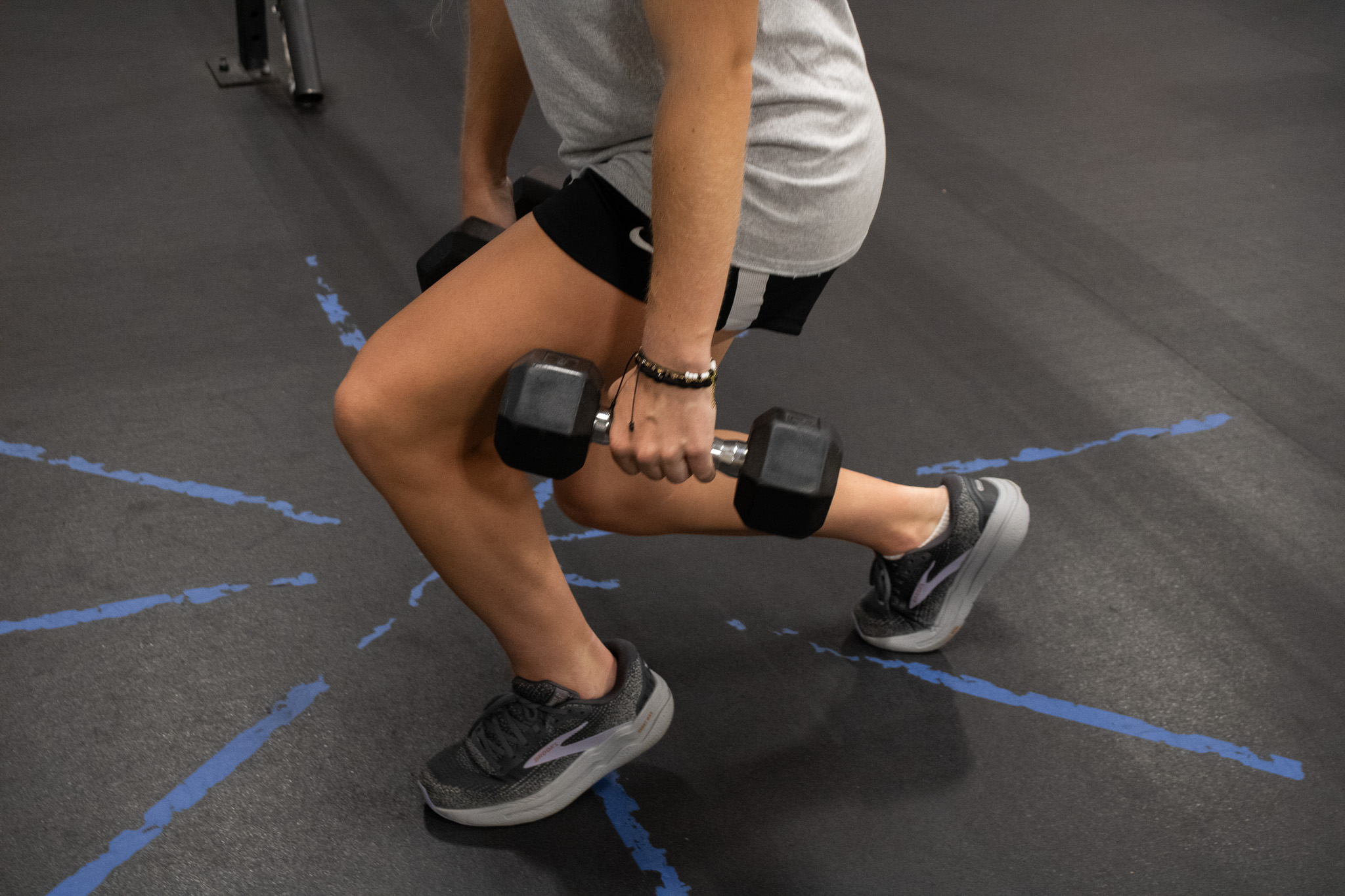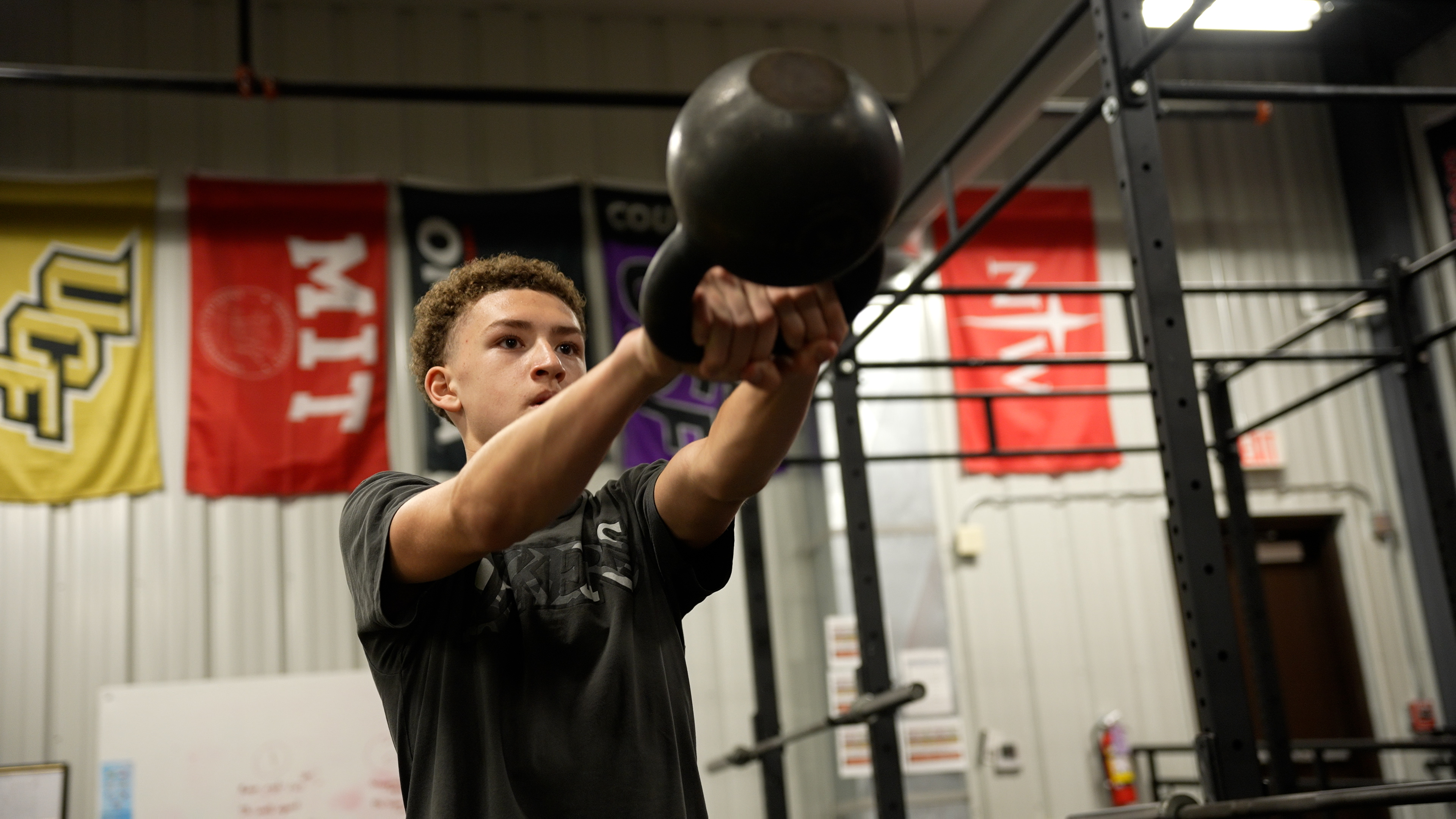Confidence is one of the most valuable traits an athlete can possess, regardless of their sport. Whether on the field, court, or track, self-belief often determines an athlete’s ability to push through challenges, handle pressure, and perform at their best. For youth athletes, developing confidence early on can have a profound impact on their performance, attitude, and love for the sport. One powerful way to build this confidence is through strength training.
In this blog post, we’ll explore how strength training can help youth athletes not only develop physical power but also boost their confidence, resilience, and mental toughness. Let’s dive into the transformative benefits of strength training for youth athletes’ self-esteem and mindset.
Mastering New Skills and Overcoming Challenges
Why it’s important: Learning a new skill can be intimidating for anyone, especially when it comes to physical challenges. But as youth athletes practice strength training, they’re learning to break through barriers, achieve progress, and build mastery.
How strength training helps: When youth athletes begin strength training, they often start with basic exercises like bodyweight squats, push-ups, or lunges. As they practice these movements, they start to notice gradual improvements. At first, they may struggle with proper form or struggle to complete a certain number of repetitions. But over time, the effort pays off, and they can do more than they could when they started.
Mastering new exercises and seeing improvements week after week builds self-efficacy—the belief that they can succeed in other areas, both in sports and life. The confidence that comes from knowing you can push through challenges in strength training translates to the confidence to face challenges in competition and practice.
Visible Physical Changes and Strength Gains
Why it’s important: Physical transformation is a powerful tool for building self-esteem, especially for young athletes who may be learning to navigate their bodies as they grow. As they build strength, they begin to notice physical changes, whether it's increased muscle definition, better posture, or greater endurance.
How strength training helps: As youth athletes engage in consistent strength training, they begin to see tangible results—whether it’s lifting heavier weights, running faster, or jumping higher. These visible signs of progress can significantly improve an athlete’s self-image and boost their confidence.
Seeing strength improvements isn’t just about aesthetics; it also helps athletes feel more capable in their bodies. When young athletes realize that their bodies can get stronger and more powerful through consistent effort, they gain confidence in their abilities to perform well in sports and tackle new challenges.
Setting and Achieving Goals
Why it’s important: Goal-setting is one of the cornerstones of athletic development. When youth athletes set goals—whether it's mastering a certain exercise, increasing reps, or improving overall strength—they are actively working toward something tangible. Achieving those goals boosts confidence and reinforces the idea that hard work leads to success.
How strength training helps: Strength training offers a natural opportunity for setting clear, measurable goals. A young athlete might set a goal to do 10 push-ups, squat a certain weight, or increase the number of lunges they can do in a set period. As they work toward these goals, they experience a sense of accomplishment every time they hit a milestone.
This process of setting, working toward, and achieving goals fosters a mindset of growth and self-belief. They start to believe that their success is a direct result of their effort and perseverance—an empowering realization that carries over to other areas of their lives.
Overcoming Mental Barriers and Building Mental Toughness
Why it’s important: Confidence isn’t just about physical strength; it’s also about mental resilience. Youth athletes often face mental barriers such as self-doubt, fear of failure, or anxiety in high-pressure situations. Strength training can help develop mental toughness and teach athletes how to push past these barriers.
How strength training helps: Strength training requires focus, discipline, and perseverance. When youth athletes challenge themselves to lift heavier weights or try new exercises, they may face moments of discomfort or frustration. These challenges force them to push through moments of mental resistance, teaching them how to handle adversity.
The process of continually testing their limits, even when it’s difficult, helps athletes develop the mental toughness needed to handle stress and pressure during competitions. Knowing that they’ve overcome physical challenges in training boosts their ability to stay calm and confident during the inevitable ups and downs of sports.
Improved Posture and Body Awareness
Why it’s important: Posture plays a crucial role in how youth athletes feel and present themselves. Good posture is linked to increased confidence and a positive self-image, while poor posture can contribute to feelings of insecurity.
How strength training helps: Many strength training exercises, such as squats, deadlifts, and planks, naturally improve posture by strengthening the muscles in the back, shoulders, and core. When athletes build strength in these areas, they start to carry themselves more upright and confidently.
Not only does this improved posture give athletes a physical sense of empowerment, but it also enhances how they’re perceived by others, further boosting their self-esteem and confidence. When athletes feel good about how they stand and move, they are more likely to feel confident in their abilities on the field or court.
Fostering a Positive Mindset and Resilience
Why it’s important: A positive mindset is essential for young athletes to perform at their best. Strength training teaches athletes that progress comes with consistent effort, and that setbacks or challenges are opportunities to grow.
How strength training helps: Through regular strength training, youth athletes learn how to stay committed to their fitness journey, even when they encounter obstacles. They may not hit personal records every session, but they learn the importance of resilience—the ability to keep going despite challenges.
This mindset shift helps athletes approach their sport with a more positive attitude, knowing that improvement is a gradual process. The confidence that comes from seeing consistent progress, combined with the mental resilience developed through strength training, creates a strong foundation for success both in and outside of sports.
Social Support and Positive Reinforcement
Why it’s important: Strength training often takes place in a group setting, whether in a team practice or a gym. Positive reinforcement from coaches, teammates, and family can help youth athletes feel supported and encouraged, which is vital for boosting confidence.
How strength training helps: In strength training sessions, athletes often receive praise and recognition for their hard work, whether it’s applauding a new personal best or acknowledging improvement in technique. This external recognition, paired with self-perception of growth, creates a positive feedback loop that reinforces the athlete’s self-belief.
Being part of a supportive training environment helps athletes develop not just physical strength, but also confidence in their social interactions. They start to feel like they belong and that their efforts are valued, which can have a powerful impact on their overall self-esteem.
Using Strength Training as a Tool to Build Confidence in Youth Sports
Strength training is more than just a way to build muscle; it’s a tool for boosting confidence in youth athletes. By helping them master new skills, achieve goals, and overcome physical and mental challenges, strength training fosters a sense of empowerment that translates into greater self-belief. Whether it's through the physical changes they see, the mental toughness they develop, or the increased resilience they gain, strength training helps young athletes feel more confident in their abilities both on and off the field.
When youth athletes feel confident in their strength and abilities, they become not only better competitors but also more resilient individuals. So, next time your athlete heads to the gym or training field, remind them that it’s not just about lifting heavier weights—it’s about building the confidence that will carry them through every challenge they face, in sports and beyond.
Ready to up you game and build your confidence? Our team of experts at Engineered Performance have you covered. Learn more about our sports performance training programs and sign up for your membership today.








